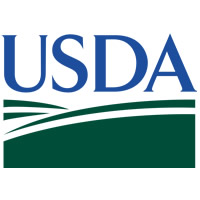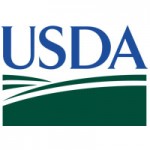The USDA Food Safety and Inspection Service (FSIS) has released a proposed regulatory framework to control Salmonella contamination in poultry products.
In its announcement, the USDA noted that the proposed framework follows months of information-gathering and discussions with a wide range of stakeholders, researchers and scientists. It consists of three key components:
- Requiring that incoming flocks be tested for Salmonella before entering an establishment
- Enhancing establishment process control monitoring and FSIS verification
- Implementing an enforceable final product standard.
“We know that Salmonella in poultry is a complex problem with no single solution,” said USDA Deputy Under Secretary Sandra Eskin. “However, we have identified a series of strategic actions FSIS could take that are likely to drive down Salmonella infections linked to poultry products consumption, and we are presenting those in this proposed framework.”
A copy of the proposed framework, which also addresses cross-cutting issues of testing for Salmonella, the impact on small and very small establishments and data sharing, is available online here.
Representatives from industry, consumer groups and other stakeholders are invited to provide input on the proposed regulatory framework by participating in a virtual public meeting November 3 from 10am to 4pm ET via Zoom. To view the agenda and to register to attend, visit the Meetings and Events page on the FSIS website.
Stakeholders can also submit written comments at www.regulations.gov.
Consumer groups are applauding the proposed framework. “This is a historic first step toward final product standards that are science-based, risk-based, enforceable, and effective at protecting our vulnerable loved ones,” said Amanda Craten, board member of STOP Foodborne Illness. “As a parent of a child who suffered from Salmonella illness and is left with permanent injury, I have advocated and engaged in the process to modernize poultry standards to ensure no child has to experience the devastation of a preventable, virulent Salmonella illness. I’m thankful that USDA is making the prevention of illnesses like my son Noah’s a priority.”
Dr. Craig Hedberg, a professor at University of Minnesota School of Public Health and Co-Director of the Minnesota Integrated Food Safety Center of Excellence, agrees that this framework “is an important step towards moving away from hazard-based regulation toward risk-based regulation. Focusing on levels of Salmonella and highly virulent strains of Salmonella rather than just the presence or absence of Salmonella should reduce the number of illnesses associated with poultry.”
The USDA FSIS continues to gather scientific evidence relevant to the approaches presented in the proposed framework.
- The National Advisory Committee on Microbiological Criteria for Foods (NACMCF) has been charged with providing guidance on what types of microbiological criteria FSIS might use to better prevent Salmonella infections associated with poultry products.
- FSIS is also completing a risk profile for pathogenic Salmonella subtypes in poultry and is collaborating on quantitative risk assessments for Salmonella in chicken and turkey that will address key risk management questions associated with this framework.
- FSIS also expanded its exploratory sampling program for young chicken carcasses to generate microbial data to help inform future policies.
- FSIS is transitioning from using presence-based tests to tests that quantify the amount of all Salmonella cells.



















